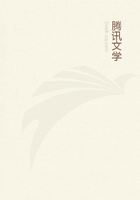
第85章 THE PUBLIC EXAMINATION.FEBRUARY,(13)
Asked,when she was before Jargeau,what it was that she wore behind her helmet,and if she had not something round it,she answered:"By my faith,there was nothing."Asked,if she knew a certain Brother Richard,she answered:"I never saw him till I was before Troyes."Asked,what cheer Brother Richard made to her,answered,that she thought the people of Troyes had sent him to her,doubting whether she had come on the part of God,and that as he approached her he made the sign of the cross,and sprinkled holy water;she said to him:"Come on boldly;I shall not fly away."Asked,if she had seen,or had caused to be made,any images or pictures of herself,she answered,that at Arras she had seen a picture in the hands of a Scot,where she was represented fully armed,kneeling on one knee,and presenting a letter to the King;but that she had never caused any image or picture of herself to be made.Asked concerning a table in the house of her host,upon which were painted three women,with /Justice,Peace,Union/inscribed beneath,answered,that she knew nothing of it.Asked,if she knew that those of her party caused masses and prayers to be made in her honour,she answered,that she knew not;and if they did so,it was not by any command of hers;but that if they did so,her opinion was that they did no wrong.Asked,if those of her party firmly believed that she was sent from God,she answered:"I know not whether they believed it;but even if they did not believe it,I am none the less sent on the part of God."Asked,whether she thought that to believe that she was sent from god was a worthy faith,she answered,that if they believed that she was sent from God they were not mistaken.Asked,if she knew what her party meant by kissing her feet and hands and her garments,answered,that many people did it,but that her hands were kissed as little as she could help it.The poor people,however,came to her of their own free will,because she never oppressed them,but protected them as far as was in her power.Asked,what reverence the people of Troyes made to her,she answered,"None at all,"and added that she believed Brother Richard came into Troyes with her army,but that she had not seen him coming in.Asked,if he had not preached at the gates when she came,answered,that she scarcely paused there at all,and knew nothing of any sermon.Asked,how long she was at Rheims,and answered,four or five days.Asked,whether she baptised (stood godmother to)children there,she answered:To one at Troyes,but did not remember any at Rheims or at Chateau-Thierry;but there were two at St.Denis;and willingly she called the boys "Charles,"in honour of her King,and the girls "Jeanne,"according to what their mothers wished.Asked,if the good women of the town did not touch with their rings the rings she wore,she answered,that many women touched her hands and her rings;but she did not know why they did it.Asked,what she did with the gloves in which her King was consecrated,she answered that "Gloves were distributed to the knights and nobles that came there";and there was one who lost his;but she did not say that she would find it for him.
Also she said that her standard was in the church at Rheims,and she believed near the altar,and she herself had carried it for a short time,but did not know whether Brother Richard had held it.
She was then asked if she communicated and went to confession often while moving about the country,and if she received the sacrament in her male costume;to which she answered "yes,but without her arms";she was then questioned about a horse belonging to the Bishop of Senlis,which had not suited her,a matter completely without importance.The inference intended was that it was taken from him without being paid for;but there was no evidence that the Maid knew anything about it.We then come to the incident of Lagny.
She was asked how old the child was which she saw at Lagny,and answered,three days;it hed been brought to Lagny to the Church of N?tre Dame,and she was told that all the maids in Lagny were before our Lady praying for it,and she also wished to go and pray God and our Lady that its life might come back;and she went,and prayed with the rest.And finally life appeared;it yawned three times,and was baptised and buried in consecrated ground.It had given no sign of life for three days and was black as her coat,but when it yawned its colour began to come back.She was there with the other maids on her knees before our Lady to make her prayer.
The reader must understand that this was no special appeal to Jeanne's miraculous power,but a custom of that intense and tender charity with which the Church of Rome corrects her dogmatism upon questions of salvation.A child unbaptised could not be buried in consecrated ground,and was subject to all the sorrows of the unredeemed;but who could doubt that the priest would be easily persuaded by some wavering of the tapers on the altar upon the little dead face,some flicker of his own compassionate eyelids,that sufficient life had come back to permit the holy rite to be administered?The whole little scene is affecting in the extreme,the young creatures all kneeling,fervently appealing to the Maiden-mother,the priest ready to take instant advantage of any possible flicker,the Maid of France,no conspicuous figure,but weeping and praying among the rest.There was no thought here of the raising of the dead--the prayer was for breath enough only to allow of the holy observance,the blessed water,the last possibility of human love and effort.